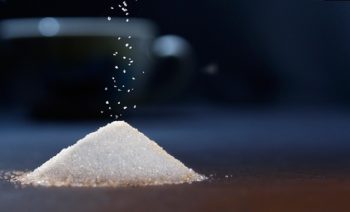 SHEDDING LIGHT ON THE SWEETER SIDE OF LIFE
SHEDDING LIGHT ON THE SWEETER SIDE OF LIFE
Welcome to another WELLNESS WEDNESDAY everyone.
In recent mornings, when I’ve been reaching for that first cup of coffee, I’ve noticed that I’m also reaching for the sugar. Now, I’m not a die-hard fan of caffeine. But I do like a warm beverage – especially on a foggy California morning – to start the day.
I’m one of those people, however, who likes that first jolt of java sweet. No black coffee for me. That’s just no fun. Yet, over the last few years I’ve been trying to eliminate sugars and sweeteners from my diet. I typically add a little Stevia to my brews – but I’m finding my drinks are still not quite sweet enough for me.
So, here’s the problem. Lately I’ve also been adding a tiny bit of plain sugar to my coffee as well – yes, in addition to the Stevia.
Apparently, I have lots of company. Research indicates that most of us like our beverages (and food) on the sweet side. Our first food, which was either breast milk or formula – was sweet. This sets up an expectation throughout our life that sweet food is good for us. We crave it.
Also, historically our ancestors equated sweet foods with safety. The taste of sweetness indicated that a food was probably okay to eat, unlike a bitter food which was more likely to be harmful.
And then we have our environment. When we feel stress our cravings for something sweet are increased because eating sweet foods causes our brains to release our “feel good” chemical dopamine. As a result, we simply feel better when our sweet tooth is satisfied.
You see, this desire for sweet food and drink has actually been programmed into our minds and bodies from a very early age.
Accordingly, I wanted to dig a little deeper and find the truth about sugar and sweeteners. So, just in case you’ve been as confused as I’ve been, I hope this analysis helps shed a little light on the sweeter side of life.
ARTIFICIAL SWEETENERS
Aspartame
This is the most common ingredient in sugar-free and processed foods. It’s sold in little packets with brand names like NutraSweet and Equal, and it’s 200 times sweeter than sugar. Unlike other sweeteners, aspartame is metabolized into compounds found in natural food and is digested by the body. It’s actually considered safe in small amounts, unless you have phenylketonuria, a genetic disease.
Sucralose
Also known as Splenda, this sweetener is about 600 times sweeter than sugar. It passes through the body and does not build up in body fat. Sweet ‘N Low aka Saccharin, are sucralose products as well and are more controversial. Saccharin, which is 300 times sweeter than sugar, was linked to bladder cancer in animals back in 1978. More recent research, however, shows no clear link between saccharin and cancer in humans. In fact, the National Cancer Institute has deemed saccharin safe for consumption.
NATURAL SUBSTITUTES FOR SUGAR 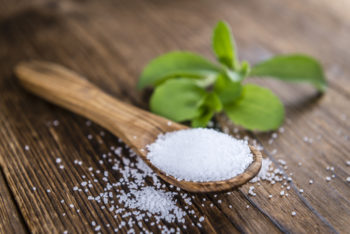
Stevia
This sweetener comes to us from the Stevia rebaudiana plant. It’s about 300 times sweeter than sugar. Like other non-sugar sweeteners, it has zero calories. It also can result in lower glucose and insulin levels than sugar. Yet only Stevia extract, also known as Rebaudioside A, has been recognized safe by the FDA. Pure Stevia has not been given the same stamp of approval.
Xylitol
This sweetener is a sugar alcohol extracted from corn or birch wood. Its taste is similar to sugar but contains 40 percent fewer calories than sugar. It does not raise insulin or blood sugar levels and contains no fructose, which can lead to several health issues.
Erythritol
This is another sugar alcohol tasting very similar to sugar but only containing 6 percent of the calories. It also does not raise blood sugars, insulin levels or cholesterol.
Yacon Syrup
Extracted from the Yacon plant of South America, this sugar alternative is sweet, thick and dark in color similar to molasses. It contains one third the calories of sugar and may actually improve the “good bacteria” in our digestive system.
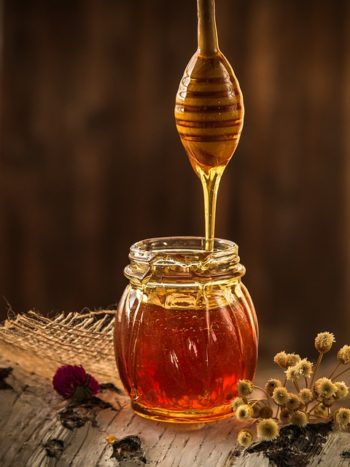 THE “LESS BAD” SUGARS
THE “LESS BAD” SUGARS
In this category we have coconut sugar, maple syrup, molasses and honey. These sugars are derived from trees, plants and honey bees. All four of these products still contain high levels of fructose and are still considered sugars – albeit in a slightly different form.
WHAT TO AVOID
Agave nectar and high fructose corn syrup are both derived from plant material. But this does not make them healthy. Both contain sky-high levels of fructose, which is linked to many health issues including obesity and diabetes.
THE BOTTOM LINE
Now let’s put these four categories of sweeteners in perspective.
First, the artificial sweeteners. In general, these chemically-produced products are not absorbed by the body and have zero calories. Only Aspartame is absorbed by the body, which means its chemical makeup may have some negative effect on our health. Overall these choices are good for those wanting to lose weight or watching their calories.
Second, the natural sugar substitutes. These products taste similar to natural sugar yet they contain far fewer calories. Also, their consumption does not raise insulin or blood sugar levels in the body. These are good choices for those who are overweight or have diabetes.
Third, the less-bad sugars. These are still sugars. They’re high in calories and high in fructose. Accordingly, they are not good choices for those watching their weight, insulin levels or blood sugars. Now if you like the flavor of these products, then go for it. But know that honey, for example, is really no better for you than regular sugar.
Fourth, what to avoid. ‘Nuff said. No one needs to consume these products for any reason.
THE VERDICT
For those watching their weight, calories or blood sugar levels artificial sweeteners may be the best and healthiest choice.
But for overall health, most experts agree that table or natural sugar is a safe and tasty way to go. Natural sugar only has 15 calories in a packet. The real culprits are hidden sugars so commonly found in foods like cereals, salad dressings, breads and flavored yogurts. So, if your diet is fairly free from hidden sugars and you are not overweight or diabetic, consuming a little natural sugar each day should not pose a problem.
The key, as always, is moderation. Don’t overdo the sugar! Similarly, don’t overdo the artificial sweeteners. Allow conventional wisdom to rule! 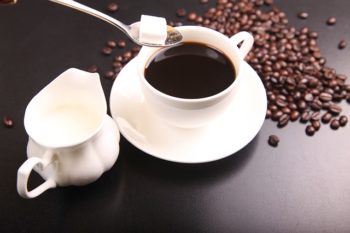
With that, I think I’m going to stay with my program — a cup of coffee, a packet of Stevia and a little bit of natural sugar to punch up the flavor and mask the subtle after-taste of the Stevia. My ratio is about one-part sugar to two-parts Stevia. It’s flavorful and thankfully, in moderation, doesn’t appear to be harmful.
Whew! That was a long-winded Blog! But I hope it proves helpful and I thank you all again for joining me.
Until next time, stay in GOOD HEALTH and . . .
TAKE THE COURSE AND TAKE CHARGE!

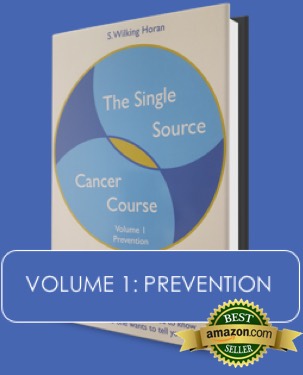
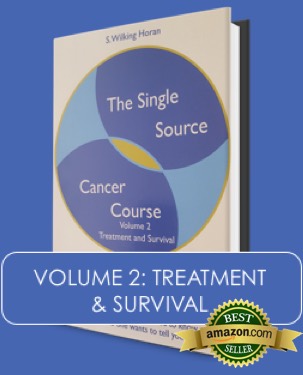
Leave a Comment